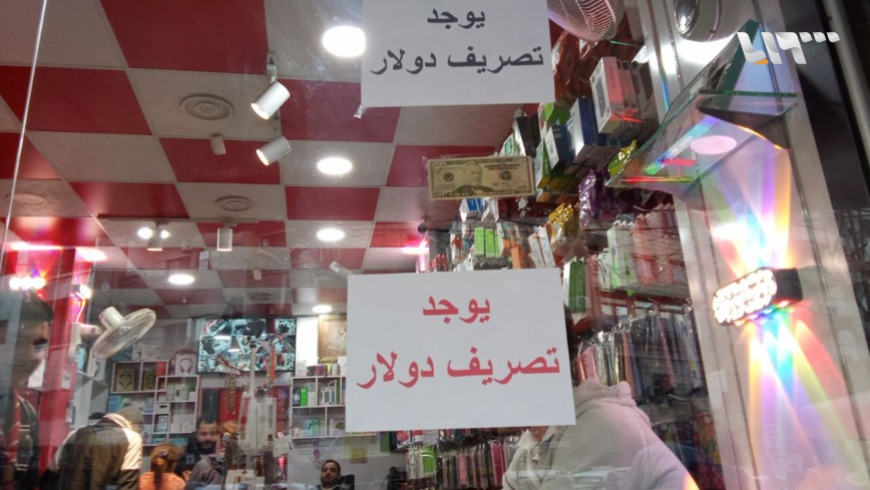Two weeks after the formation of Syria’s caretaker government, led by Mohammad al-Bashir, and its assumption of state management, the government issued a series of economic decisions described by observers as “revolutionary.”
These decisions have had a positive impact on several fronts, most notably the value of the Syrian pound, which has improved against foreign currencies. The dollar exchange rate has stabilized at 13,000 pounds, down from 16,000 pounds before the fall of Bashar al-Assad’s regime on December 8.
Economic Measures and Tangible Improvement
The government’s economic decisions included the removal of customs duties that had been imposed by the previous regime for years on imports to offset the state’s fiscal deficit. This move has led to a significant reduction in the prices of various goods, products, and vehicles.
This development has renewed hope for Syria’s most vulnerable segments, who were deprived for years of meeting basic needs due to the totalitarian economic policies of the former regime.
Beyond household items and imported medicines, Syrians have also revived their dreams of owning cars, as prices for some types of vehicles have dropped by as much as 200% following the elimination of customs duties under the previous administration.
The caretaker government has further fueled optimism with promises to swiftly revive the economy and increase salaries by 400% in the near future, potentially opening a path toward improved living standards after years of hardship.
A Glimmer of Hope After Years of Hardship
“We were sinking deeper into poverty every day, and no one seemed to notice. Our monthly salaries barely covered basic needs for more than a week, and my husband’s debts reached nearly 30 million pounds in the past year alone,” said Roaa al-Masri, a teacher in Jaramana and mother of three.
Speaking to Syria TV, al-Masri shared her ordeal: “Our lives were consumed by constant stress and anxiety about our future and our children’s future. If the government fulfills its promise to increase salaries by 400% and prices drop, we may finally be able to live with dignity.”
Samer Abu Bakr, a painting instructor in Damascus, expressed similar optimism, believing that increased salaries would benefit various professions and markets. However, he emphasized the need for price reductions to ensure these benefits materialize.
In mid-December, Ahmad al-Sharaa, the commander-in-chief of the new Syrian administration, confirmed that the government was studying a proposal to raise salaries by 400%.
Currently, the average salary for public sector employees in Syria is roughly $25, leaving many struggling to cope with skyrocketing prices for essential goods and services.
Concerns Despite Optimism
Despite widespread optimism, concerns remain about the potential negative impact of the economic decisions on domestic industries.
Abu al-Khair, an electrical appliance dealer in Jaramana, warned: “Reducing customs duties could result in an influx of cheap imported goods, which may harm local factories and lead to their closure.”
He added, “The high production costs that Syrian factories face, combined with their lower efficiency compared to foreign manufacturers, make them less competitive. This could result in the closure of national factories and the loss of hundreds of jobs.”
Bold but Contentious Decisions
Syrian lawyer and human rights advocate Ezzeddin Mohammed Ezzeddin described the caretaker government’s economic decisions as bold and decisive but stressed the importance of achieving national consensus to prevent social inequality.
“These decisions fundamentally alter the identity of the Syrian economy,” he explained. “Even the former criminal regime—despite its dictatorship—would give the appearance of legitimacy to such measures. That’s why, nearly two decades ago, it transitioned from a socialist economy to a self-styled social-liberal model.”
This article was translated and edited by The Syrian Observer. The Syrian Observer has not verified the content of this story. Responsibility for the information and views set out in this article lies entirely with the author.


